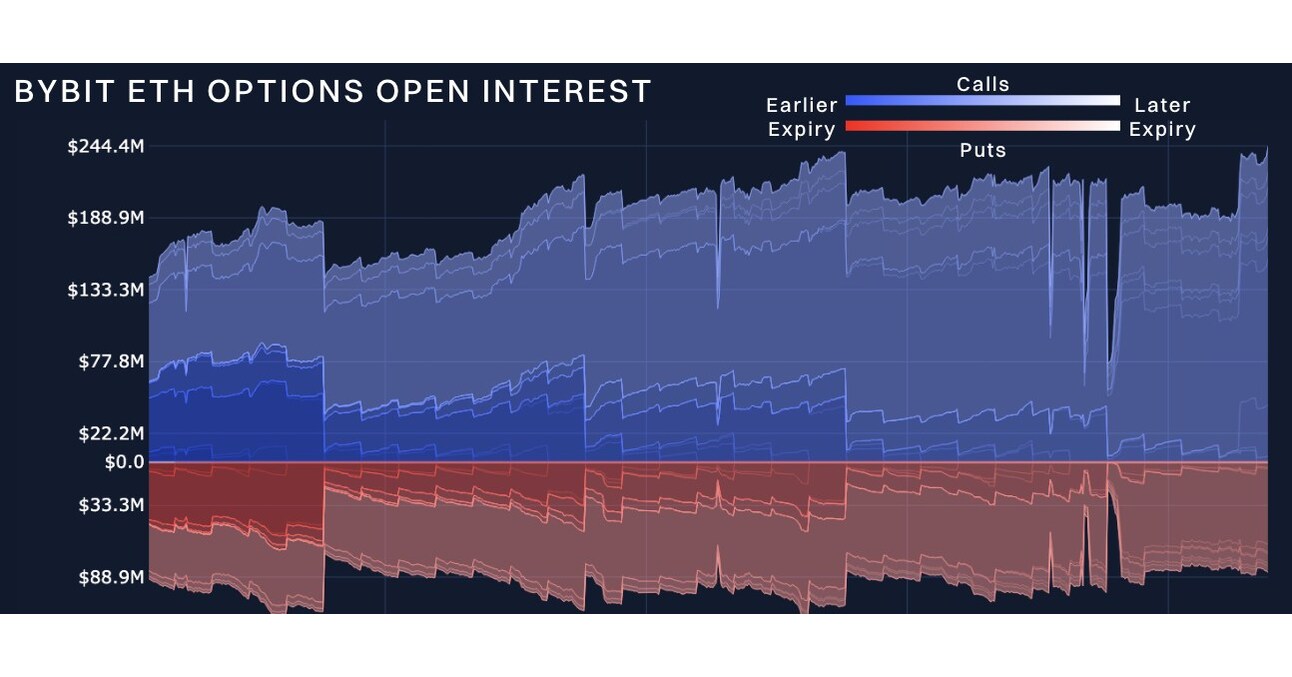Crypto
Israel-Palestine war: An Indian twist in the cryptocurrency funding trail of Hamas

Hamas launched devastating attacks from Gaza into Israel over the weekend, marking one of the most severe escalations in the Israel-Palestinian conflict in recent years. The attack has left many wondering about the source of funding for the surprise operation. Cryptocurrency may be the potential answer to this question.
Crypto Funds Flow to Militant Groups
In the lead-up to the attacks, an investigation into Israeli government seizure orders and blockchain analytics reports has shed light on the flow of significant sums to three militant groups: Hamas, Palestinian Islamic Jihad, and their Lebanese ally, Hezbollah. According to a report by WSJ, the digital currency wallets connected to the Palestinian Islamic Jihad (PIJ) received a staggering $93 million in cryptocurrency between August 2021 and June of this year. The report cites a comprehensive analysis conducted by renowned crypto researcher Elliptic.
Indian Crypto Heist Connection
Meanwhile, an Indian crypto heist investigation yielded startling findings. A complainant reported the fraudulent transfer of Bitcoins, Ethereum, and Bitcoin cash worth about Rs 30 lakhs from their cryptocurrency wallet. The case initially registered in PS-Paschim Vihar was later transferred to the Cyber Crime Unit, Special Cell, Delhi, upon the orders of the Hon’ble Court.
During the investigation, a cryptocurrency trail led to unexpected revelations. The cryptocurrencies ultimately ended up in wallets associated with the Al-Qassam Brigades, the military wing of the Palestinian organisation Hamas, and the wallets that had already been seized by Israel’s National Bureau for Counter Terror Financing. One such seized wallet belonged to Mohammad Naseer Ibrahim Abdulla.
Other wallets, where a significant portion of the cryptocurrencies had been transferred, were found to be operated from Giza, Egypt. One such wallet belonged to Ahmed Marzooq, a resident of Giza, Egypt, while another wallet belonged to Ahmed Q H Safi, a resident of Ramallah, Palestine.
The cryptocurrencies were funnelled through various private wallets and eventually landed in wallets operated in Gaza, Egypt, and the military wings of the Palestinian organization Hamas. Notably, one of these wallets had already been seized and frozen by the National Bureau for Counter Terror Financing in Israel. The investigation suggested that the bitcoins and other cryptocurrencies had been fraudulently transferred from the complainant’s wallet.
Israel Takes Swift Action to Freeze Crypto Accounts
In response to suspicions that Hamas had initiated a fundraising campaign via social networks urging the public to deposit cryptocurrencies into their accounts with the outbreak of war, Israel took rapid action. The Israeli Police Cyber Unit and the Ministry of Defense located and froze these cryptocurrency accounts, with the cooperation of the Binance crypto exchange, aiming to redirect the funds to the state treasury.
The precise details regarding the number of frozen accounts and the value of seized cryptocurrencies remain undisclosed.
Hamas’s Evolving Stance on Cryptocurrency Fundraising
Hamas had historically endorsed cryptocurrency as a fundraising method. However, in April, the group announced it would cease accepting fundraising via the cryptocurrency bitcoin, citing a rise in “hostile” activities against donors.
(With inputs from Arvind Ojha)
Also Read Fake ‘nuclear bomb alerts’ to taking down govt websites, the Israel-Hamas war goes digital

Crypto
Russian Companies Reportedly Using Crypto for International Payments | PYMNTS.com

Russian businesses are reportedly using bitcoin and other cryptocurrencies to make international payments.
It’s a trend that comes in the wake of legislative changes that permitted these types of payments to get around western sanctions, Reuters reported Tuesday (Dec. 26), citing comments from Russian Finance Minister Anton Siluanov.
As the report noted, the sanctions — issued following Russia’s invasion of Ukraine in 2022 — have made it tougher for Russia to trade with partners like China and Turkey. But this year, Russia began allowing crypto for foreign trades, and is working on legalizing the mining of crypto such as bitcoin.
“As part of the experimental regime, it is possible to use bitcoins, which we had mined here in Russia (in foreign trade transactions),” Siluanov told Russia 24 television channel.
“Such transactions are already occurring. We believe they should be expanded and developed further. I am confident this will happen next year,” he said, adding that using digital currencies to make international payments represent the future.
PYMNTS explored this idea earlier this week in a report on events in the cryptocurrency/blockchain world in the past year.
“Cross-border payments, historically plagued by high fees and slow transaction times, underwent a significant transformation in 2024,” that report said. “Blockchain technology emerged as a key enabler, offering transparency, speed and cost efficiency.”
Stablecoins play a key role, PYMNTS added, letting businesses bypass traditional correspondent banking networks and settle transactions almost instantly.
“Blockchain technology and public blockchains in particular, are opening up a number of new use cases, one of which is to transfer value — such as remittances — from one country to another,” Raj Dhamodharan, executive vice president, blockchain and digital assets at Mastercard, told PYMNTS.
Research by PYMNTS Intelligence has found that cryptocurrency use in making cross-border payments could be the winning use case that the sector has been searching for. The research shows that blockchain-based cross-border solutions, especially stablecoins, are being increasingly used by firms looking for better ways to transact and expand internationally.
“Blockchain solutions and stablecoins — I don’t like to use the term crypto because this is more about FinTech — they’ve found product-market fit in cross-border payments,” Sheraz Shere, general manager of payments and commerce at Solana Foundation, said in an interview here earlier this year. “You get the disintermediation, you get the speed, you get the transparency, you get extremely low cost.”
Crypto
Markets Show Resilience Ahead of End-of-Year Options Expirations: Bybit x Block Scholes Crypto Derivatives Report

DUBAI, UAE, Dec. 26, 2024 /PRNewswire/ — Bybit, the world’s second-largest cryptocurrency exchange by trading volume, released the latest Crypto Derivatives Analytics Report in collaboration with Block Scholes, highlighting the muted market volatility despite major options expirations on Friday. BTC and ETH’s realized volatility has increased, but short-term options haven’t adjusted to this change. This indicates that while spot prices are fluctuating, the options market is not fully reacting to these shifts, although BTC and ETH volumes have displayed slightly different patterns.
Sources: Bybit, Block Scholes
With more than $525 million in BTC and ETH options contracts expiring on Dec 27, 2024’s end-of-year options expiration looks set to be one of the biggest yet, yet expectations for volatility have remained subdued. The report highlights an unusual inversion in ETH’s volatility structure, but BTC has not mirrored the reaction. Additionally, a change in funding rates—sometimes turning negative as spot prices drop—signals a new market phase. Notably, BTC’s volatility structure has been less responsive to changes in spot prices, whereas ETH’s short-term options are exhibiting more noticeable fluctuations.
Key Findings:
BTC Options Expirations:
In the past month, BTC’s realized volatility has been higher than implied volatility on three occasions, each time reaching a relatively calm equilibrium. Open interest in BTC options remains high, contributing to potential increased volatility as we near the end of the year. Around $360 million worth of BTC options (both puts and calls) are set to expire soon, which can affect price movement.
ETH Options: Calls Dominate
Despite a mid-week inversion, ETH’s volatility term structure has flattened, maintaining levels similar to those seen over the past month. In the final week of 2024, calls overwhelmed puts in open interest in ETH options, although market movements and trading activities are more on the put side.
Access the Full Report:
Gain deeper insights and explore the potential impacts on your crypto trading strategies by downloading the full report here: Bybit X Block Scholes Crypto Derivatives Analytics Report (Dec 24, 2024)
#Bybit / #BybitResearch
About Bybit
Bybit is the world’s second-largest cryptocurrency exchange by trading volume, serving a global community of over 60 million users. Founded in 2018, Bybit is redefining openness in the decentralized world by creating a simpler, open and equal ecosystem for everyone. With a strong focus on Web3, Bybit partners strategically with leading blockchain protocols to provide robust infrastructure and drive on-chain innovation. Renowned for its secure custody, diverse marketplaces, intuitive user experience, and advanced blockchain tools, Bybit bridges the gap between TradFi and DeFi, empowering builders, creators, and enthusiasts to unlock the full potential of Web3. Discover the future of decentralized finance at Bybit.com.
For media inquiries, please contact: [email protected]
For more information, please visit: https://www.bybit.com
For updates, please follow: Bybit’s Communities and Social Media
Discord | Facebook | Instagram | LinkedIn | Reddit | Telegram | TikTok | X | Youtube
Photo – https://mma.prnewswire.com/media/2587821/Sources_Bybit_Block_Scholes.jpg
Logo – https://mma.prnewswire.com/media/2267288/Logo.jpg
Crypto
WSJ “Trump's Emphasis on Cryptocurrency and AI Highlights Need for Renewable Energy”

There is a prospect that the renewable energy industry could be revitalized due to President-elect Donald Trump’s proactive stance on cryptocurrency and artificial intelligence (AI).
On the 25th (local time), the Wall Street Journal (WSJ) highlighted the power consumption involved in AI and cryptocurrency mining businesses, predicting a need for more power sources. Senator Kevin Cramer told the Wall Street Journal, “We don’t have enough electricity for servers used in AI or cryptocurrency,” emphasizing the need for as much energy as possible, including not only fossil fuels but also renewable energy.
President-elect Trump has so far taken a negative stance on the ‘climate crisis’ and its solution, renewable energy, but it is explained that this position could change. The media noted, “Trump has previously criticized electric vehicles, but he shifted his stance after getting closer to Elon Musk, CEO of Tesla. Trump’s stance on renewable energy could also be relaxed.”
-
/cdn.vox-cdn.com/uploads/chorus_asset/file/24924653/236780_Google_AntiTrust_Trial_Custom_Art_CVirginia__0003_1.png)
/cdn.vox-cdn.com/uploads/chorus_asset/file/24924653/236780_Google_AntiTrust_Trial_Custom_Art_CVirginia__0003_1.png) Technology6 days ago
Technology6 days agoGoogle’s counteroffer to the government trying to break it up is unbundling Android apps
-

 News7 days ago
News7 days agoNovo Nordisk shares tumble as weight-loss drug trial data disappoints
-

 Politics7 days ago
Politics7 days agoIllegal immigrant sexually abused child in the U.S. after being removed from the country five times
-

 Entertainment1 week ago
Entertainment1 week ago'It's a little holiday gift': Inside the Weeknd's free Santa Monica show for his biggest fans
-

 Lifestyle1 week ago
Lifestyle1 week agoThink you can't dance? Get up and try these tips in our comic. We dare you!
-
/cdn.vox-cdn.com/uploads/chorus_asset/file/25672934/Metaphor_Key_Art_Horizontal.png)
/cdn.vox-cdn.com/uploads/chorus_asset/file/25672934/Metaphor_Key_Art_Horizontal.png) Technology2 days ago
Technology2 days agoThere’s a reason Metaphor: ReFantanzio’s battle music sounds as cool as it does
-

 Technology1 week ago
Technology1 week agoFox News AI Newsletter: OpenAI responds to Elon Musk's lawsuit
-

 News3 days ago
News3 days agoFrance’s new premier selects Eric Lombard as finance minister
















